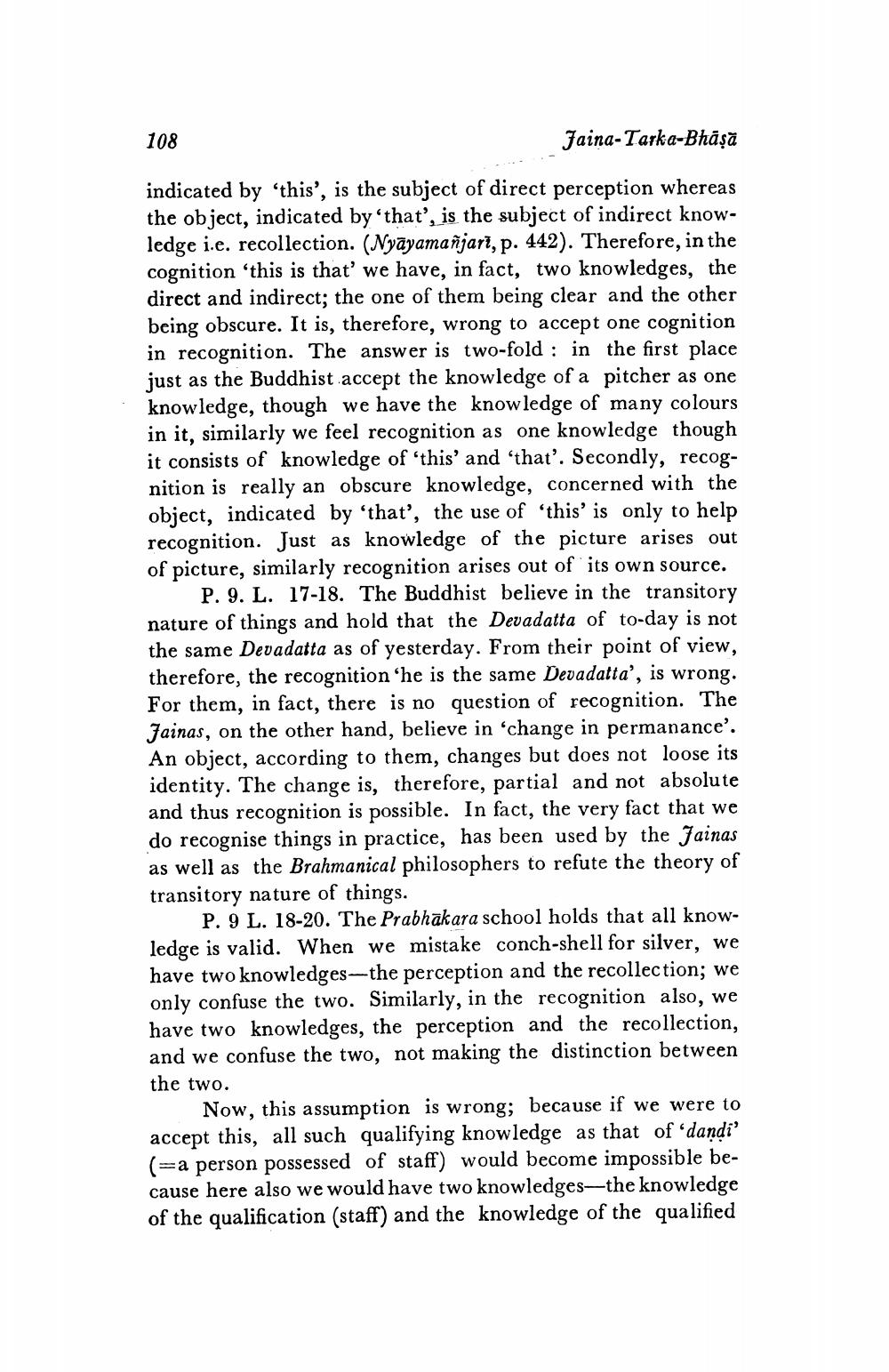________________
Jaina-Tarka-Bhāṣā
indicated by 'this', is the subject of direct perception whereas the object, indicated by 'that', is the subject of indirect knowledge i.e. recollection. (Nyayamañjarī, p. 442). Therefore, in the cognition 'this is that' we have, in fact, two knowledges, the direct and indirect; the one of them being clear and the other being obscure. It is, therefore, wrong to accept one cognition in recognition. The answer is two-fold in the first place just as the Buddhist accept the knowledge of a pitcher as one knowledge, though we have the knowledge of many colours in it, similarly we feel recognition as one knowledge though it consists of knowledge of 'this' and 'that'. Secondly, recognition is really an obscure knowledge, concerned with the object, indicated by 'that', the use of 'this' is only to help recognition. Just as knowledge of the picture arises out of picture, similarly recognition arises out of its own source. P. 9. L. 17-18. The Buddhist believe in the transitory nature of things and hold that the Devadatta of to-day is not the same Devadatta as of yesterday. From their point of view, therefore, the recognition 'he is the same Devadatta', is wrong. For them, in fact, there is no question of recognition. The Jainas, on the other hand, believe in 'change in permanance'. An object, according to them, changes but does not loose its identity. The change is, therefore, partial and not absolute and thus recognition is possible. In fact, the very fact that we do recognise things in practice, has been used by the Jainas as well as the Brahmanical philosophers to refute the theory of transitory nature of things.
108
P. 9 L. 18-20. The Prabhakara school holds that all knowledge is valid. When we mistake conch-shell for silver, we have two knowledges-the perception and the recollection; we only confuse the two. Similarly, in the recognition also, we have two knowledges, the perception and the recollection, and we confuse the two, not making the distinction between the two.
Now, this assumption is wrong; because if we were to accept this, all such qualifying knowledge as that of 'dandi' (=a person possessed of staff) would become impossible because here also we would have two knowledges-the knowledge of the qualification (staff) and the knowledge of the qualified




